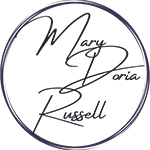This morning a reader sent me a note saying, “I read the electronic versions of your books and I have an appeal to make to you: could you tell your publisher that there is no reason to price the e-book version $3 more than the paperback?”
I couldn’t decide if I should laugh or cry.
It would be difficult to underestimate the influence that individual writers have on the industries we feed. Screenwriters, newspaper writers, novelists, textbook writers… We are krill in our ecosystem: necessary, but at the bottom of the food chain. I’ve often heard screenwriters complain about how nothing would happen in Hollywood without them. Producers and actors and directors would starve. Studios would go under. The economy of California (such as it is) would stagger in their absence. And yet, when the script is finally made, it becomes
A Hugh Fennyman Production
of
Mr. Henslowe’s Presentation
of
the Admirall’s Men
in performance of the
excellent and Lamentable Tragedie
of
Romeo and Juliet
with Mr. Fennyman as the Apothecary
at 3:00 this afternoon.
Not even Shakespeare got any respect — that’s the implication of Marc Norman and Tom Stoppard’s superb screenplay Shakespeare in Love.
The reality is that an author’s suggestions about things like ebooks prices (or the cast of a movie, for that matter) are of zero interest to the people who make those decisions. The pricing of ebooks is currently central to an enormous legal and economic battle in which publishers, online booksellers, independent bookseller associations, giant chain stores, and the Authors Guild all have teams of lawyers. As a dues-paying member of the Authors Guild, I’ve received a series of long articles detailing what the disagreements are about, and what’s good or bad for writers. I’ve made an honest attempt to understand all this, but it’s like reading an algebra text. My eyes glaze over. I rely on the judgment of my wonderful agent Jane Dystel. She gets me the best contracts possible; I sign whatever she sends me.
People often ask me what I think of ebooks in general. My stock answer has been, “I have friends who love them and friends who loathe them. I don’t need a tree to die for my prose, so whatever you choose is fine.”
Recently, however, the Authors Guild weighed in on this and from what I’ve read it appears that publishers always do much better when you buy an ebook, whereas authors do better when you buy a physical book. Publishers need to make money and the industry has been under terrible pressure for a number of years. That said, you’re supporting a lot of American jobs when you buy a physical book.
My ambition is to write books that you will want to hold in your hands and keep on your shelves and reread someday. And I’ll tell you something you might not know. The initial sales of each book determine the fate of the next one for writers like me, who get contracts for every book separately. In a real sense, when you buy an unused book, you are voting YES on its author’s future in the publishing industry. So, for a lot of reasons, I hope you’ll buy the hardcover of Doc — early and often!
Remember: Father’s Day is coming. I’m just saying…
